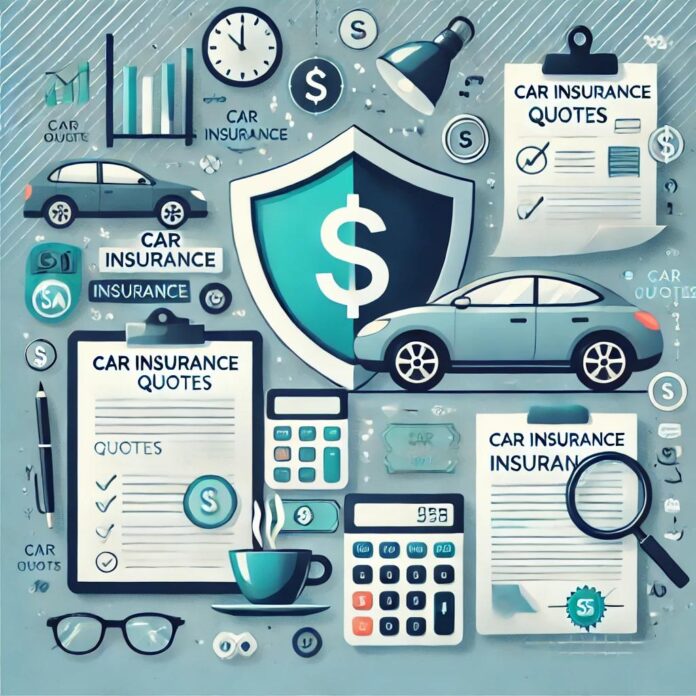Car Insurance Quotes: How to Get the Best Coverage at the Right Price Car insurance is not only a legal requirement for drivers in most places, but it is also a crucial safeguard against financial loss in the event of accidents, theft, or damage to your vehicle. Whether you’re buying car insurance for the first time or shopping around for better rates, understanding how car insurance quotes work is key to finding the right coverage at an affordable price. This article explores what car insurance quotes are, the factors that affect them, and tips for finding the best coverage that suits your needs. What Are Car Insurance Quotes? A car insurance quote is an estimate of the cost you will pay for auto insurance based on several factors. It gives you an idea of what your monthly or annual premium might be, depending on the type of coverage you select and your personal driving profile. Car insurance quotes are typically free and can be obtained online, over the phone, or through an insurance agent. When you request a quote, you will be asked to provide information about yourself, your vehicle, and your driving history. Insurance companies use this data to assess the level of risk you present as a driver and calculate your premium accordingly. It’s important to remember that quotes are just estimates; your final premium could be slightly higher or lower based on a more detailed evaluation when you sign up for a policy. Factors That Influence Car Insurance Quotes Car insurance premiums are calculated based on a variety of factors that help insurers determine the likelihood of you making a claim. Understanding these factors can help you make informed decisions and find the best quote possible:
1. Driving History Your driving record is one of the most significant factors influencing your car insurance quote. A clean record with no accidents or traffic violations typically results in a lower premium because it indicates that you are a low-risk driver. Conversely, a history of accidents, speeding tickets, or DUIs will likely increase your premium as insurers view you as a higher risk. The number of years you have been driving also plays a role. Experienced drivers with several years of safe driving may receive better rates than new or young drivers.
2. Vehicle Type The make, model, age, and value of your vehicle impact your insurance quote. Expensive, high-performance cars, luxury vehicles, or cars that are costly to repair typically come with higher premiums. On the other hand, standard models with good safety ratings and lower repair costs usually have lower insurance rates. Additional modifications or enhancements to your vehicle, such as custom parts or performance upgrades, can also increase your premium because they may make the vehicle more attractive to thieves or more costly to repair.
3. Location Where you live and park your car affects your insurance rates. Urban areas with high traffic, higher crime rates, or a history of frequent accidents tend to result in higher premiums. Insurers charge more in these locations due to the increased risk of theft, vandalism, and accidents. Conversely, if you live in a rural or suburban area with lower crime and accident rates, you are likely to receive a more favorable quote.
4. Coverage Level The amount of coverage you choose directly affects your insurance quote. Basic liability coverage, which is the minimum required by law in many places, typically has the lowest premium. However, if you opt for full coverage (which includes comprehensive and collision coverage), the cost will be higher. Additional coverage options, such as uninsured motorist protection, rental reimbursement, and roadside assistance, can also raise your premium. It’s important to choose coverage levels that match your needs and budget.
5. Personal Details Factors like your age, gender, marital status, and credit score can influence your quote. Young drivers and male drivers often face higher premiums, as they are statistically more likely to be involved in accidents. Similarly, single drivers may pay more than married drivers, who are considered lower-risk. Your credit score can also play a role. In some regions, insurers use credit information to predict the likelihood of filing a claim, meaning drivers with higher credit scores may receive lower quotes. Tips for Getting the Best Car Insurance Quote To find the best car insurance quote, it’s important to shop around and compare multiple options. Here are a few tips to help you get started: 1. Compare Quotes from Multiple Providers Obtain quotes from at least three to five different insurance companies. This will give you a clear understanding of the market and help you identify which provider offers the best combination of price and coverage. Online comparison tools make it easy to compare quotes side by side and evaluate your options.
2. Look for Discounts Insurance companies often offer various discounts that can significantly reduce your premium. These may include safe driver discounts, multi-policy discounts (e.g., bundling car and home insurance), and discounts for safety features like anti-theft systems, airbags, and anti-lock brakes. Ask each provider about available discounts and eligibility criteria to maximize your savings.
3. Adjust Your Coverage Levels and Deductible Consider your coverage needs carefully and adjust them to fit your budget. If you drive an older car that is fully paid off, you might not need comprehensive and collision coverage. Additionally, increasing your deductible (the amount you pay out of pocket in the event of a claim) can lower your premium. However, make sure you choose a deductible amount that you can afford in case of an accident.
4. Maintain a Good Driving Record The best way to secure a low insurance premium is to maintain a clean driving record. Avoiding accidents and traffic violations not only reduces your immediate costs but also helps you qualify for safe driver discounts and keeps your premium low over time.
